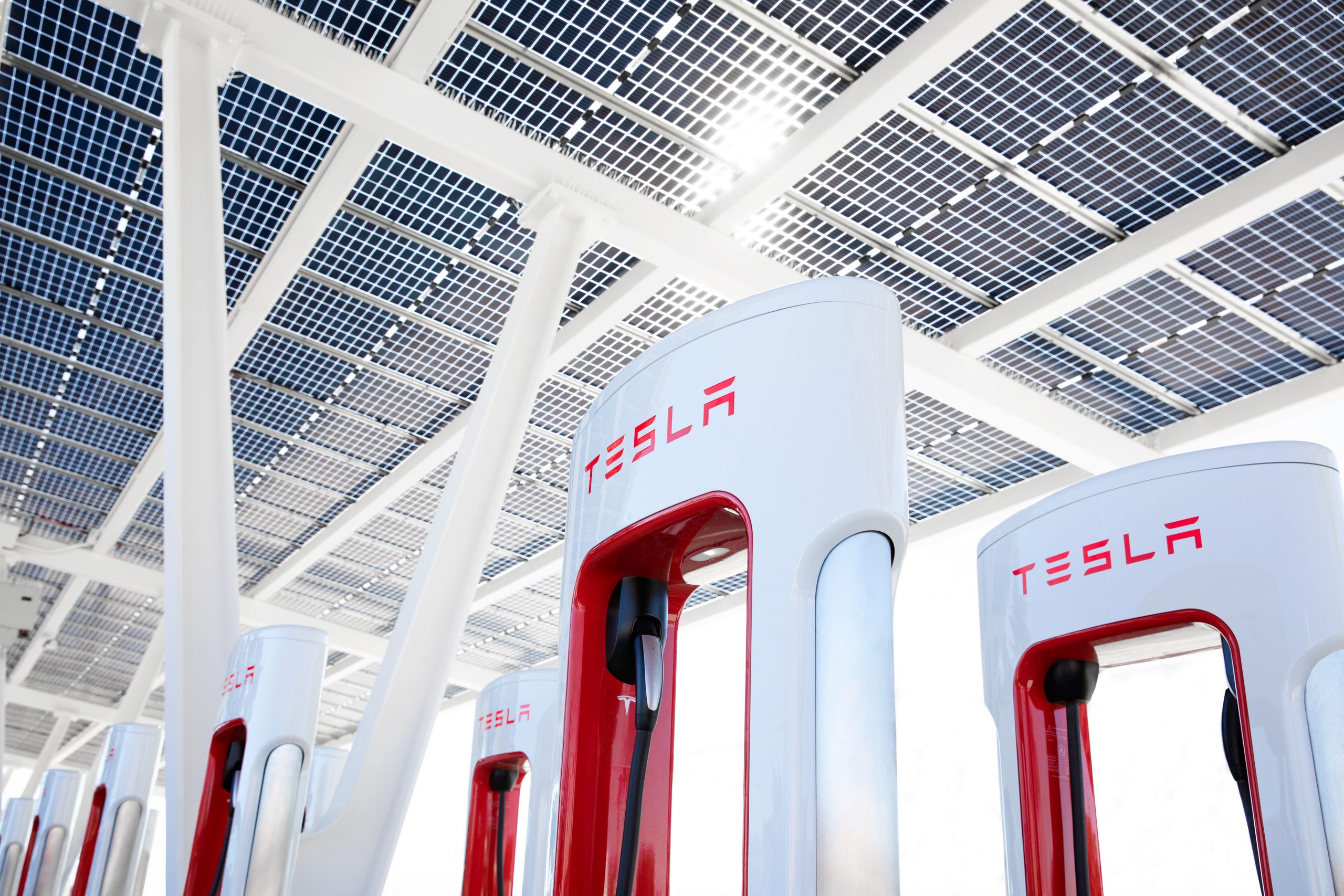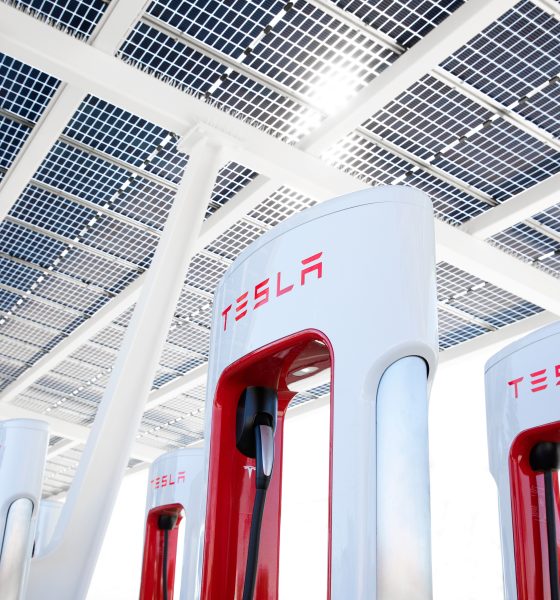

Investor's Corner
Tesla set for ‘massive trajectory’ for Q3 deliveries fueled by September demand
-
- Wedbush analyst Dan Ives says September Tesla deliveries are on pace for “massive trajectory”
- Ives reiterates “Outperform” rating; holds $1,000 price target
- Tesla on pace for 230,000 deliveries, Ives predicts
Tesla (NASDAQ: TSLA) is set for its biggest quarter in company history, according to Wedbush analyst and $TSLA bull Daniel Ives. Ives, who has periodically put his two cents regarding Tesla stock for several years, has spoken highly of the electric automaker, giving the company credit for being the leading force in the up-and-coming “green tidal wave” that will overtake the automotive sector as a whole. Tesla’s Q3 2021 is likely to be fed in part by September demand, which Ives believes is trending toward historic levels thanks to the automaker’s ability to avoid the long and drawn-out shortage of semiconductor chips.
Ives, who currently maintains an “Outperform” rating on $TSLA stock with a price target of $1,000, said that he is confident Tesla would exceed consensus expectations, which have Q3 deliveries set at 123,000 vehicles. Ives is more convinced of Tesla hitting 230,000 deliveries in Q3, mainly fueled by a “massive trajectory” of between 145,000 to 150,000 deliveries in September alone.
“The pace of EV deliveries in the US and China have been robust the last 4-6 weeks with an eye-popping growth trajectory heading into 4Q and 2022 for Musk & Co.,” Ives wrote in a note to investors.
September may be the saving grace for Tesla in Q3, especially as Elon Musk wrote in a leaked email to Tesla employees earlier this month that Q3 has the potential to be the company’s most remarkable. The CEO told workers that this week has the potential to be the “most intense delivery week ever,” as Tesla continues to trend toward record numbers once again. Tesla has not seen a decline in sales or deliveries of its vehicles Quarter-over-Quarter since Q1 2019.
The only reason Ives believes Tesla won’t have an even bigger quarter than he expects is due to the semiconductor chip shortage. While Tesla was able to avert most of the production delays and manufacturing stoppages with the creation of its own in-house microcontrollers, there was still a negative effect on the company’s production and delivery rate in July and August, he said in the note. Ives believes Tesla would have delivered around 80,000 to 90,000 vehicles for the first two months of the quarter. Overall, Ives said that the chip shortage may have decreased the overall production and delivery number by around 40,000 units.
RELATED:
Tesla (TSLA) gets upbeat estimates from Wall St amid “strongest ever” quarter
Tesla’s decision to export vehicles from Shanghai to Europe earlier this month to begin sales of the Model Y crossover on the continent could have also affected the automaker’s overall outlook for Q3. Ives believes the intense and complicated logistical process may have thrown a few wrenches into Tesla’s overall growth.
Even still, as Tesla navigated through the chip shortage and handled a new logistical process with relative ease, Ives is convinced that Tesla will still report its biggest quarter when Q3 wraps up tomorrow.
Analysts at other financial firms have already listed their estimates for Tesla’s third quarter. Many analysts have expectations for around 230,000 vehicles, including Alex Potter of Piper Sandler and Credit Suisse analyst Dan Levy. The analysts estimated 233,000 and between 225,000-230,000 deliveries for Q3, respectively.
Disclosure: Joey Klender is a TSLA Shareholder.

Elon Musk
SpaceX IPO could push Elon Musk’s net worth past $1 trillion: Polymarket
The estimates were shared by the official Polymarket Money account on social media platform X.

Recent projections have outlined how a potential $1.75 trillion SpaceX IPO could generate historic returns for early investors. The projections suggest the offering would not only become the largest IPO in history but could also result in unprecedented windfalls for some of the company’s key investors.
The estimates were shared by the official Polymarket Money account on social media platform X.
As noted in a Polymarket Money analysis, Elon Musk invested $100 million into SpaceX in 2002 and currently owns approximately 42% of the company. At a $1.75 trillion valuation following SpaceX’s potential $1.75 trillion IPO, that stake would be worth roughly $735 billion.
Such a figure would dramatically expand Musk’s net worth. When combined with his holdings in Tesla Inc. and other ventures, a public debut at that level could position him as the world’s first trillionaire, depending on market conditions at the time of listing.
The Bloomberg Billionaires Index currently lists Elon Musk with a net worth of $666 billion, though a notable portion of this is tied to his TSLA stock. Tesla currently holds a market cap of $1.51 trillion, and Elon Musk’s currently holds about 13% to 15% of the company’s outstanding common stock.
Founders Fund, co-founded by Peter Thiel, invested $20 million in SpaceX in 2008. Polymarket Money estimates the firm owns between 1.5% and 3% of the private space company. At a $1.75 trillion valuation, that range would translate to approximately $26.25 billion to $52.5 billion in value.
That return would represent one of the most significant venture capital outcomes in modern Silicon Valley history, with a growth of 131,150% to 262,400%.
Alphabet Inc., Google’s parent company, invested $900 million into SpaceX in 2015 and is estimated to hold between 6% and 7% of the private space firm. At the projected IPO valuation, that stake could be worth between $105 billion and $122.5 billion. That’s a growth of 11,566% to 14,455%.
Other major backers highlighted in the post include Fidelity Investments, Baillie Gifford, Valor Equity Partners, Bank of America, and Andreessen Horowitz, each potentially sitting on multibillion-dollar gains.
Elon Musk
Elon Musk hints Tesla investors will be rewarded heavily
“Hold onto your Tesla stock. It’s going to be worth a lot, I think. That’s my bet,” Musk said.

Elon Musk recently hinted that he believes Tesla investors will be rewarded heavily if they continue to hold onto their shares, and he reiterated that in a new interview that the company released on its social accounts this week.
Musk is one of the most successful CEOs in the modern era and has mammothed competitors on the Forbes Net Worth List over the past year as his holdings in his various companies have continued to swell.
Tesla investors, especially those who have been holding shares for several years, have also felt substantial gains in their portfolios. Over the past five years, the stock is up over 78 percent. Since February 2019, nearly seven years ago to the day, the stock is up over 1,800 percent.
Musk said in the interview:
“Hold onto your Tesla stock. It’s going to be worth a lot, I think. That’s my bet.”
Elon Musk in new interview: “Hold on to your $TSLA stock. It’s going to be worth a lot, I think. That’s my bet.” pic.twitter.com/cucirBuhq0
— Sawyer Merritt (@SawyerMerritt) February 26, 2026
It’s no secret Musk has been extremely bullish on his own companies, but Tesla in particular, because it is publicly traded.
However, the company has so many amazing projects that have an opportunity to revolutionize their respective industries. There is certainly a path to major growth on Wall Street for Tesla through its various future projects, including Optimus, Cybercab, Semi, and Unsupervised FSD.
- Optimus (Tesla’s humanoid robot): Musk has discussed its potential for tasks like childcare, walking dogs, or assisting elderly parents, positioning it as a massive long-term driver of company value.
- Cybercab (Tesla’s robotaxi/autonomous ride-hailing vehicle): a fully autonomous vehicle geared specifically for Tesla’s ride-sharing ambitions.
- Semi (Tesla’s electric truck, with mentions of expansion, like in Europe): brings Tesla into the commercial logistics sector.
- Unsupervised FSD (Full Self-Driving software achieving full autonomy without human supervision): turns every Tesla owner’s vehicle into a fully-autonomous vehicle upon release
These projects specifically are some of the highest-growth pillars Tesla has ever attempted to develop, especially in Musk’s eyes, as he has said Optimus will be the best-selling product of all-time.
Many analysts agree, but the bullish ones, like Cathie Wood of ARK Invest, are perhaps the one who believes Tesla has incredible potential on Wall Street, predicting a $2,600 price target for 2030, but this is not even including Optimus.
She told Bloomberg last March that she believes that the project will present a potential additive if Tesla can scale faster than anticipated.
Elon Musk
Tesla stock gets latest synopsis from Jim Cramer: ‘It’s actually a robotics company’
“Turns out it’s actually a robotics and Cybercab company, and I want to buy, buy, buy. Yes, Tesla’s the paper that turned into scissors in one session,” Cramer said.

Tesla stock (NASDAQ: TSLA) got its latest synopsis from Wall Street analyst Jim Cramer, who finally realized something that many fans of the company have known all along: it’s not a car company. Instead, it’s a robotics company.
In a recent note that was released after Tesla reported Earnings in late January, Cramer seemed to recognize that the underwhelming financials and overall performance of the automotive division were not representative of the current state of affairs.
Instead, we’re seeing a company transition itself away from its early identity, essentially evolving like a caterpillar into a butterfly.
The narrative of the Earnings Call was simple: We’re not a car company, at least not from a birds-eye view. We’re an AI and Robotics company, and we are transitioning to this quicker than most people realize.
Tesla stock gets another analysis from Jim Cramer, and investors will like it
Tesla’s Q4 Earnings Call featured plenty of analysis from CEO Elon Musk and others, and some of the more minor details of the call were even indicative of a company that is moving toward AI instead of its cars. For example, the Model S and Model X will be no more after Q2, as Musk said that they serve relatively no purpose for the future.
Instead, Tesla is shifting its focus to the vehicles catered for autonomy and its Robotaxi and self-driving efforts.
Cramer recognizes this:
“…we got results from Tesla, which actually beat numbers, but nobody cares about the numbers here, as electric vehicles are the past. And according to CEO Elon Musk, the future of this company comes down to Cybercabs and humanoid robots. Stock fell more than 3% the next day. That may be because their capital expenditures budget was higher than expected, or maybe people wanted more details from the new businesses. At this point, I think Musk acolytes might be more excited about SpaceX, which is planning to come public later this year.”
He continued, highlighting the company’s true transition away from vehicles to its Cybercab, Optimus, and AI ambitions:
“I know it’s hard to believe how quickly this market can change its attitude. Last night, I heard a disastrous car company speak. Turns out it’s actually a robotics and Cybercab company, and I want to buy, buy, buy. Yes, Tesla’s the paper that turned into scissors in one session. I didn’t like it as a car company. Boy, I love it as a Cybercab and humanoid robot juggernaut. Call me a buyer and give me five robots while I’m at it.”
Cramer’s narrative seems to fit that of the most bullish Tesla investors. Anyone who is labeled a “permabull” has been echoing a similar sentiment over the past several years: Tesla is not a car company any longer.
Instead, the true focus is on the future and the potential that AI and Robotics bring to the company. It is truly difficult to put Tesla shares in the same group as companies like Ford, General Motors, and others.
Tesla shares are down less than half a percent at the time of publishing, trading at $423.69.








